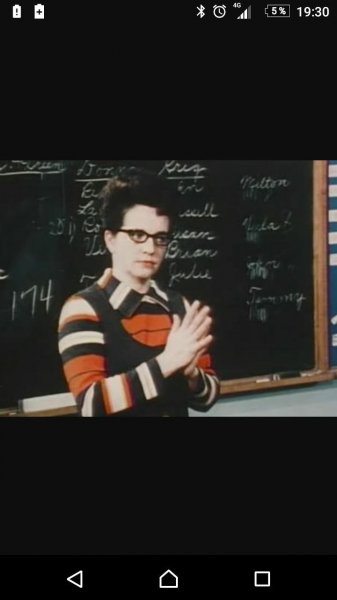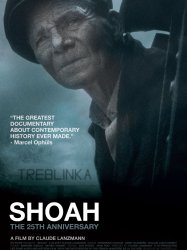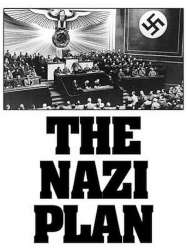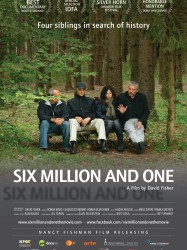Blue Eyed is a film of genre Documentary
Blue Eyed (1996)

If you like this film, let us know!
- Infos
- Casting
- Technical infos
- Photos
- Videos
- Film quotes
- Characters
- Music
- Awards
Length 1h30
Genres Documentary
Themes Films about racism, Documentary films about racism, Documentary films about law, Documentaire sur une personnalité
Rating81%










Blue Eyed is a 1996 documentary film by Bertram Verhaag in which Jane Elliott is teaching a workshop on racism.
She separates people regarding their eye color. The brown or green eye color people are considered to be superior to the blue eye color people. Through this division she creates a whole environment where educated adults, many times in position of power, even though being aware of taking part in a workshop, disagree, argue with each other and cry, not being able to cope or stand the situation in which they are put.
Jane Elliott argues that despite people considering themselves open and caring, they never know how deep is the repression and outcasting which they help to create by doing nothing against it and conforming with the current situation.
The documentary received the 1996 IDFA Audience Award.
Comments
Leave comment :
Suggestions of similar film to Blue Eyed
There are 8975 with the same cinematographic genres, 3221 films with the same themes (including 195 films with the same 4 themes than Blue Eyed), to have finally 70 suggestions of similar films.If you liked Blue Eyed, you will probably like those similar films :
 , 1h41
, 1h41Directed by Rithy Panh
Origin France
Genres War, Documentary, Historical
Themes Politique, Films about racism, Documentary films about racism, Documentary films about law, Documentary films about war, Documentary films about historical events, Documentaire sur une personnalité, Political films
Rating71%





Vann Nath and Chum Mey, two survivors of the Khmer Rouge's Tuol Sleng Prison, are reunited and revisit the former prison, now a museum in Phnom Penh. They meet their former captors – guards, interrogators, a doctor and a photographer – many of whom were barely teenagers during the Khmer Rouge era from 1975 to 1979. Their appearances are in stark contrast to the two former prisoners, who are both elderly men. Vann Nath, who was made to paint portraits of prisoners, has a full head of white hair.

Death of Apartheid (1995)
, 50minutesDirected by Mick Gold
Origin United-kingdom
Genres Documentary
Themes Films set in Africa, Films about racism, Documentary films about racism, Documentary films about law, Documentaire sur une personnalité, Documentary films about politics, Political films
Rating66%





 , 1h27
, 1h27Genres War, Documentary
Themes Films about racism, Films about religion, Documentary films about racism, Documentary films about law, Documentary films about war, Documentary films about historical events, Documentaire sur une personnalité, Documentary films about politics, Documentary films about religion, Political films, Films about Jews and Judaism, Documentary films about World War II
Rating72%






Luboml: My Heart Remembers (2003)
, 57minutesGenres Documentary
Themes Films about racism, Films about religion, Documentary films about racism, Documentary films about law, Documentary films about war, Documentary films about historical events, Documentaire sur une personnalité, Documentary films about religion, Political films, Films about Jews and Judaism, Documentary films about World War II

Shoah (1985)
, 9h26Directed by Claude Lanzmann
Origin France
Genres Documentary, Historical
Themes Films about racism, Films about religion, Documentary films about racism, Documentary films about law, Documentary films about war, Documentary films about historical events, Documentaire sur une personnalité, Documentary films about religion, Political films, Films about Jews and Judaism, Documentary films about World War II
Actors Claude Lanzmann
Rating86%





The film is concerned chiefly with four topics: Chełmno, where mobile gas vans were first used by Germans to exterminate Jews; the death camps of Treblinka and Auschwitz-Birkenau; and the Warsaw Ghetto, with testimonies from survivors, witnesses, and perpetrators.

Marion's Triumph (2003)
, 50minutesGenres Documentary
Themes Films about children, Films about racism, Films about religion, Documentary films about racism, Documentary films about law, Documentary films about war, Documentary films about historical events, Documentaire sur une personnalité, Documentary films about religion, Political films, Films about Jews and Judaism, Documentary films about World War II
Actors Debra Messing
 , 30minutes
, 30minutesOrigin USA
Genres Documentary
Themes Films about racism, Documentary films about racism, Documentary films about law, Documentaire sur une personnalité
In the mid-1940s, a tenant farmer named Gonzalo Mendez moved his family to the predominantly white Westminster district in Orange County and his children were denied admission to the public school on Seventeenth Street. The Mendez family move was prompted by the opportunity to lease a 60-acre (240,000 m) farm in Westminster from the Munemitsus, a Japanese family who had been relocated to a Japanese internment camp during World War II. The income the Mendez family earned from the farm enabled them to hire attorney David Marcus and pursue litigation.

The Nazi Plan (1945)
Directed by George Stevens
Origin USA
Genres Documentary
Themes Films about racism, Films about religion, Documentary films about racism, Documentary films about law, Documentary films about war, Documentary films about historical events, Documentaire sur une personnalité, Documentary films about religion, Political films, Films about Jews and Judaism, Documentary films about World War II
Rating67%





The film's central footage and themes "relied heavily" on the work of German film maker Leni Riefenstahl, in particular the 1935 movie Triumph des Willens (Triumph of the Will).

Six Million and One (2012)
, 1h33Genres Documentary
Themes Films about racism, Films about religion, Documentary films about racism, Documentary films about law, Documentary films about war, Documentary films about historical events, Documentaire sur une personnalité, Documentary films about religion, Political films, Films about Jews and Judaism, Documentary films about World War II
Rating66%





Joseph Fischer's memoir was discovered only after his death. His children refused to confront it, except for David, the filmmaker, for whom it became a compass for a long journey. When David found it unbearable to be alone in the wake of his father's survival story and in his struggle not to lose his sanity, he convinced his brothers and sister to join him in the hope that this would also contribute to releasing tensions and bring them as close as they used to be. His siblings, for their part, couldn’t understand why anyone should want to dig into the past instead of enjoying life in the present. The journey eventually leads the Fishers into the dark depths of the B8 Bergkristall tunnels, part of the Austrian KZ Gusen II concentration camp, where their father endured forced labor during the Holocaust. Illuminated only by flashlights, they seek meaning in their personal and family histories and undergo surgical and revealing discussions about family, survival and individualism only to come to the realization that they are unable to fully understand their father's past and the events that haunted him. Joseph Fischer's last couple of weeks at Gunskirchen concentration camp, were an inhuman experience that blocked his writing. In order to find out what his father failed to describe about Gunskirchen's liberation David located veterans of the 71st Infantry Division who liberated the camp. The elderly soldiers are still haunted and traumatized by the horrific sights they came across when entering the camp. Through their journey, the Fishers become emblematic of the entire second generation who are still grappling with the experience of their survivor parents.

Flower in the Gun Barrel (2008)
Origin USA
Genres Documentary
Themes Films set in Africa, Films about racism, Documentary films about racism, Documentary films about law, Documentary films about war, Documentary films about historical events, Documentaire sur une personnalité, Documentary films about politics, Political films
Rating80%





To a large extent, the film consists of interviews with genocide survivors, many of whom were children in 1994. In all, over thirty survivors, perpetrators, and experts were interviewed for the film. In these interviews, the survivors discuss what it means to be a Rwandan and to live next door to people who killed their families. The survivors describe how they deal with their country's request that they forgive one another and move on, so that Rwanda can rebuild and unify itself. Perpetrators' views illuminate the madness that seized the culture in 1994; exploring the experience of apologizing to victims, and examining what it is like to be looked at as a murderer in Rwandan society.
 Connection
Connection